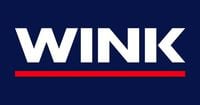The United Nations has taken a bold step this week, adding nearly 70 companies from 11 countries to its blacklist for their alleged involvement in supporting Israeli settlements in the occupied West Bank. This move, announced on September 26 and 27, 2025, has reignited global debate over the legality and ethics of business ties to settlements that the UN and much of the international community consider illegal under international law.
The list, which now totals 158 firms, shines a spotlight on the complex web of international business, diplomacy, and human rights concerns surrounding the Israeli-Palestinian conflict. According to Reuters and India Today, the newly added companies hail from diverse sectors such as construction, security, travel, and financial services. Notably, the majority of the companies are Israeli, but the list also features high-profile international names from the United States, Canada, China, Britain, France, Germany, Spain, Portugal, the Netherlands, and Luxembourg.
Among the most prominent new additions are Heidelberg Materials from Germany, Steconfer from Portugal, and Ineco from Spain. The travel and accommodation sector is also well-represented, with U.S.-based Expedia Group, Booking Holdings Inc., Airbnb, and TripAdvisor remaining on the list. According to the UN Human Rights Office, all companies listed are involved in one or more of ten activities identified as raising particular human rights concerns. These activities include construction, real estate, mining, and quarrying, all of which are seen as directly enabling or benefiting from the expansion of settlements.
The UN's move is rooted in a Human Rights Council resolution passed nearly a decade ago, which called for the creation of a database to increase transparency around corporate activities linked to Israeli settlements. The intention, as explained by UN Human Rights Chief Volker Türk, is to underscore the due diligence responsibility of businesses operating in conflict areas. "Businesses working in contexts of conflict have a due diligence responsibility to ensure their activities do not contribute to human rights abuses," Türk stated, as reported by Reuters. The latest report also calls on businesses to provide or cooperate in remediation if they have caused or contributed to adverse human rights impacts.
The process for updating the list is extensive. The UN Human Rights Office notified companies of their potential inclusion and allowed them to respond. In this latest update, seven firms were removed from the list—among them, the UK-based Opodo and Spain's eDreams ODIGEO S.A.—after the UN determined there were reasonable grounds to believe they were no longer involved in the activities that had previously justified their inclusion.
Predictably, the move has drawn sharp criticism from Israel and some of its allies. The Israeli government has categorically rejected the blacklist, describing it as a politically motivated effort that unfairly targets companies conducting legal business. "This database is meant to serve as a blacklist against businesses that have committed no wrongdoing, as there is no general prohibition in international law against business activity in areas of conflict," the Israeli diplomatic mission in Geneva said in a statement, as cited by Reuters. Israel maintains that it will not dismantle West Bank settlements and continues to approve new developments, despite mounting international pressure and the growing number of countries recognizing an independent Palestinian state.
Some of the companies named have also pushed back. Heidelberg Materials, for instance, told Reuters that its inclusion was "not justified" and insisted it was no longer active in the occupied Palestinian territory. Steconfer described its role as "neutral, apolitical," emphasizing that its work is focused on improving public transport for all residents. Expedia, another company on the list, explained its position: "We connect travelers with independently operated accommodations, including some in disputed areas. These listings are clearly labeled, comply with international laws and sanctions, and undergo enhanced due diligence guided by U.N. standards." Other accommodation platforms did not immediately respond to requests for comment.
The international legal status of Israeli settlements remains a contentious issue. The UN and most of the world consider the settlements illegal under international law, a position reinforced by a 2024 ruling from the UN's highest court. Israel, however, disputes this, citing biblical and historical ties to the land and arguing that the territory is disputed rather than occupied. The Israeli government has long protested what it sees as "disproportionate attention" from the Geneva-based Human Rights Council, claiming that the focus on Israel is politically driven.
The expansion of the blacklist comes at a time of heightened tension and scrutiny. Since Israel's military campaign in Gaza and an uptick in raids in the West Bank—operations Israel says are aimed at militants but which have also harmed civilians—the spotlight on corporate involvement in the settlements has only grown brighter. Civil society groups argue that the database is a vital tool for transparency and accountability, prompting companies to reconsider their activities in the region.
The scale of the settlement enterprise is considerable. Since Israel captured the West Bank in the 1967 war, the number and size of settlements have steadily increased. Today, more than 500,000 Israelis live in the West Bank, with an additional 200,000 in East Jerusalem, according to India Today. The settlements, connected by a network of roads and infrastructure under Israeli control, carve up Palestinian territory and remain at the heart of the conflict.
The UN Commission of Inquiry, in a report released on September 23, 2025, found that Israeli policies since October 2023 have demonstrated a clear intent to forcibly transfer Palestinians, expand Jewish settlements, and annex the entire West Bank. Israel dismissed the report, accusing the Commission of pursuing a politically motivated agenda.
The diplomatic stakes are high. The expansion of the blacklist coincides with some European countries recognizing a Palestinian state, a development that further isolates Israel diplomatically. Meanwhile, U.S. President Donald Trump stated on September 25, 2025, that he would not allow Israel to annex the West Bank, rejecting calls from some far-right Israeli politicians to extend sovereignty over the area and effectively end hopes for a two-state solution.
As the UN continues to screen more than 300 additional businesses for potential inclusion in the database, the debate over the role of international companies in the Israeli-Palestinian conflict is far from over. For now, the expanded blacklist serves as both a warning and a challenge to businesses worldwide: in conflict zones, the line between commerce and complicity can be perilously thin.
The story of the UN blacklist is, in many ways, a reflection of the broader struggle over land, rights, and recognition in the region—a struggle that continues to shape the lives of millions and the policies of nations far beyond the Middle East.



